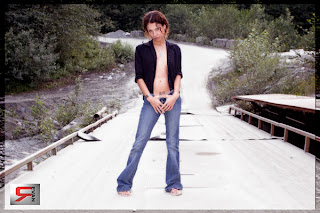
Ignorance is easy to maintain when students are sheltered from the world. It is not deliberate—if kids are never allowed the exposure, they might grow up thinking that puppies rule the world and there is no such thing as genocide. Ignorance is bliss— and I have been blessed with it for far too long.
The Canadian public school system failed me in a few ways, but mainly on its presentation of history. While I was celebrating my friend Katie’s birthday, Rwanda was drowning in a torrent of hate-driven slaughter. I ate cake and smiled while children my age had their limbs hacked from their torsos by blunt machetes—and I had no clue.
I wasn’t deliberately ignorant; it’s just that no one discussed this in school. I never knew about the Rwandan genocide until years later when I watched Hotel Rwanda, which made me feel like an unaware jerk. How could something so devastating occur in my lifetime without my knowledge?
No one really cares about Africa— you hear it all the time: “Those negros are killing themselves, it’s their own fault.” “Why don’t they just stop having sex? Then the population, hunger, and the AIDS problems would all be solved.” “They should rise up against their corrupt governments and take back the donations that have been stolen.”
History is repeating itself in Darfur. Millions of Africans are dying from various causes and the West doesn’t care. But maybe if we taught our children about the horrors of war and genocide when they are still young then a sense of caring would be instilled within them as they grew? Isn’t that the point of history class—to learn from the past to have a better future?
History classes in public schools all have a Canadian viewpoint, as they should, but some main and recent acts of history are left out—we weren’t even allowed to watch Schindler’s List in my high school. I appreciate Lois Riel and all, but a little less Red River Riot and more Dieppe may have helped boost patriotism within students, too.
Recently, I devoted a day to watching documentaries on You Tube about Rwanda. From there, I moved onto Bosnia and Cambodia. I’d heard scatterings of these stories on the news, but obviously not to the gory extent that I discovered on my own.
It’s not like my knowing about the carnage would change anything—one girl can’t stop a genocide— but learning about them has changed my viewpoint on other races, and given me compassion for the millions that have died during these slaughters or have sought refuge in our peaceful-by-comparison country. Just acknowledging the plight of others can make you a better person.


No comments:
Post a Comment